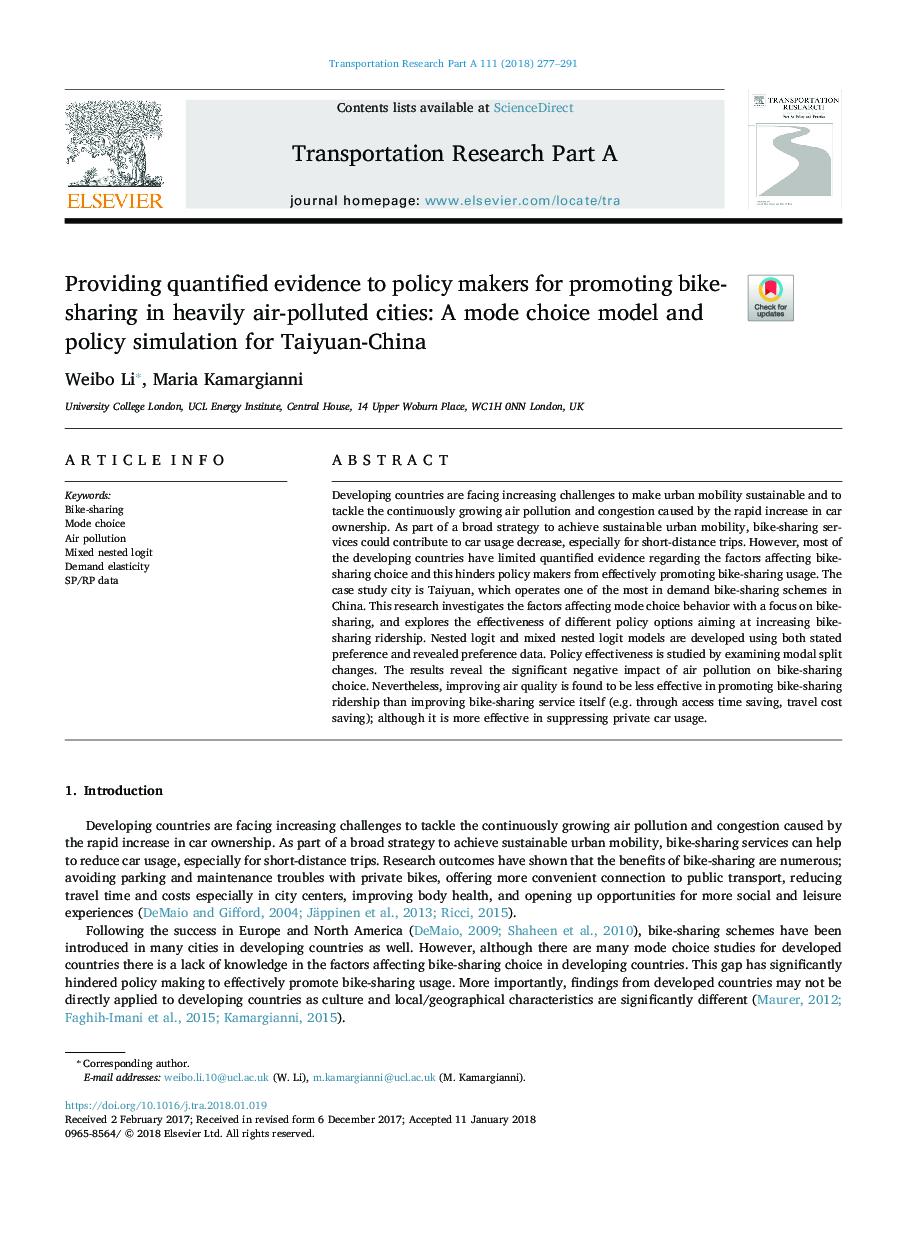| Article ID | Journal | Published Year | Pages | File Type |
|---|---|---|---|---|
| 6780312 | Transportation Research Part A: Policy and Practice | 2018 | 15 Pages |
Abstract
Developing countries are facing increasing challenges to make urban mobility sustainable and to tackle the continuously growing air pollution and congestion caused by the rapid increase in car ownership. As part of a broad strategy to achieve sustainable urban mobility, bike-sharing services could contribute to car usage decrease, especially for short-distance trips. However, most of the developing countries have limited quantified evidence regarding the factors affecting bike-sharing choice and this hinders policy makers from effectively promoting bike-sharing usage. The case study city is Taiyuan, which operates one of the most in demand bike-sharing schemes in China. This research investigates the factors affecting mode choice behavior with a focus on bike-sharing, and explores the effectiveness of different policy options aiming at increasing bike-sharing ridership. Nested logit and mixed nested logit models are developed using both stated preference and revealed preference data. Policy effectiveness is studied by examining modal split changes. The results reveal the significant negative impact of air pollution on bike-sharing choice. Nevertheless, improving air quality is found to be less effective in promoting bike-sharing ridership than improving bike-sharing service itself (e.g. through access time saving, travel cost saving); although it is more effective in suppressing private car usage.
Related Topics
Physical Sciences and Engineering
Engineering
Civil and Structural Engineering
Authors
Weibo Li, Maria Kamargianni,
